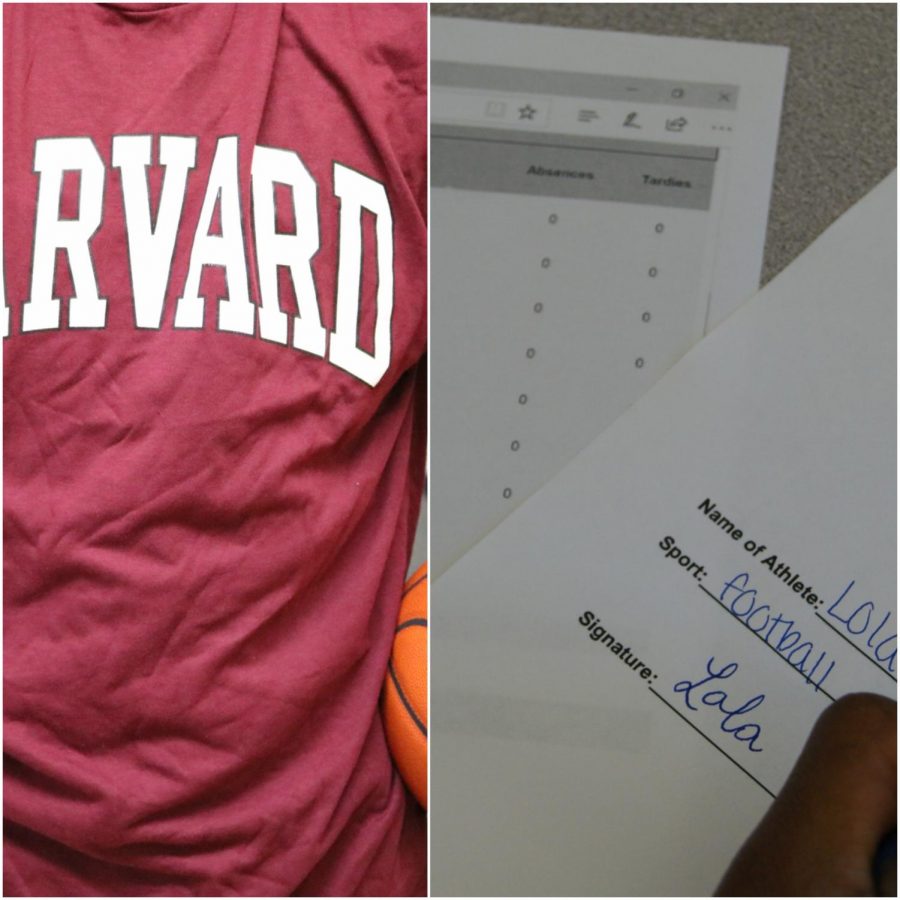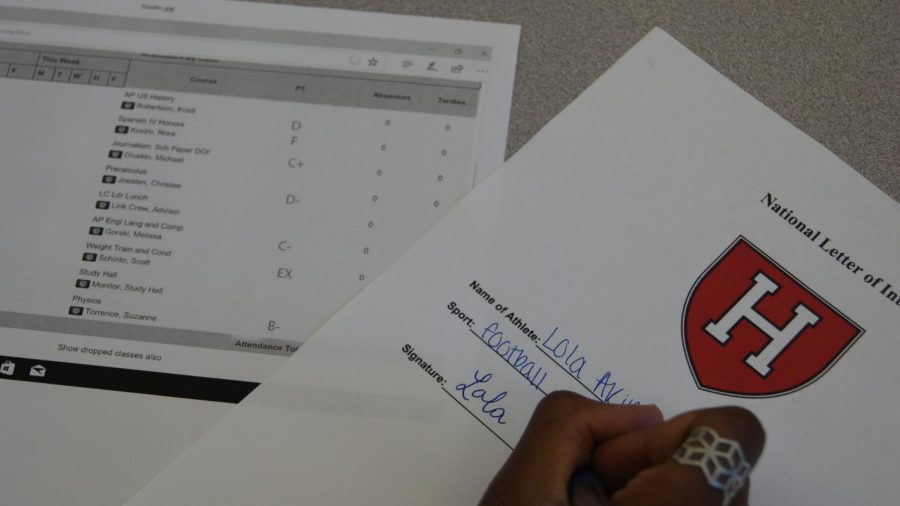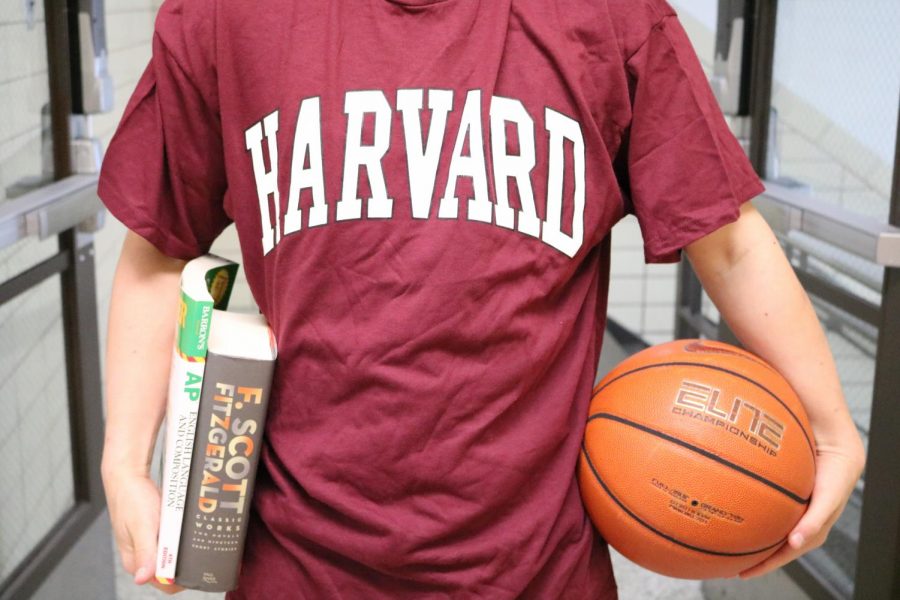Athletes are accepted into ivy league universities, despite not having the grades to be accepted.
Academics > Athletics
I just want to start out by saying that I am not an athlete. However, I do appreciate all the immense effort that athletes put into their sports, and I find their dedication incredibly admirable.
While I am not an athlete, I am a student: a student who is applying to college. And it is not fair when an athlete who may have gotten a 20 on the ACT, has a 3.0 GPA and does no extracurriculars but sports gets into a prestigious school. Getting accepted into highly prestigious schools solely based on athletic abilities is nonsensical. It not only hurts the athlete’s academic performance because they will most likely not succeed well in an academically rigorous environment, but it also tells students that academics are less important than sports.
I want to clarify that I’m in no way targeting the athletes for their craft because it’s not their fault. If I was accepted into Yale because of my athletic abilities, there would be no doubt that I would call myself a Bulldog and be decked out in blue and white the next day, who wouldn’t jump on such an amazing opportunity?! So athletes aren’t the ones to blame here; there is only one source to blame for this: the college system.
College is a game. It’s a business. So, one of the ways that colleges try to brand themselves is by being good — at everything, including their sports teams. According to The New York Times, up to 20 percent of the spots at most top universities are reserved for recruited athletes. For a school that has an acceptance rate of 15 percent, New York Times reported that recruited athletes’ acceptance rate boosts to around 80 to 90 percent. They are more than five times as likely to get into a prestigious school because of the sport they play.
In addition, of that 20 percent of athletes accepted, many of them come in well below the standard of the school. Sports are very important, but 20 percent seems like an excessive amount of spots that are lost to athletes. Academic qualifications should be taken into greater consideration when recruiting athletes for prestigious universities (these are the most selective colleges in the U.S.!). College sports recruiters should look at potential student candidates not just as someone who can better their sports teams, but also at how their minds can better the academic component of the institution.
An athlete needs to be viewed more holistically. The brain is arguably the most important organ in the human body and should be valued highly when considering potential students admits for prestigious institutions.
When it is more likely to be accepted into a prestigious school based on athletics, the incentives for doing well academically are diminished. I cannot stress how important academics are in our modern society. Everything in life is shaped around learning. Being a good learner, or just having the drive to learn in general, should be an essential characteristic when considering potential admits to prestigious colleges. If an athlete can successfully balance an academically rigorous curriculum (they don’t have to be Einstein but at least smart enough for an Ivy) and excel in athletics as well, then they should be accepted into prestigious colleges.
Some may argue that students excel in all different arenas, and athletics may just be an area where a student thrives and therefore, they should be commended by getting accepting into a prestigious school because of this. To that, I would say, yes, that is a valid thought. However, a student who thrives in athletics and not so much in academics should not be getting admitted into a school that is so academically rigorous.
There are more than 1,400 colleges in the U.S., and I’m positive that there is a better fit than Harvard or Yale or Princeton or Brown for a student gifted athletically but not academically.
Student- Athletes put in hard work on both the playing field and the classroom.
Give Student Athletes the Benefit
Becoming a Division I athlete, or an athlete at any collegiate level, is not easy, just like getting into a school academically is not easy. Both take lots of time, dedication and hard work.
So, if an athlete is able to earn a Division I offer, they should be able to get into that school, even if they academically fall below the admissions standards for non-athletes.
Last year, only 3.3 percent of male high school seniors, of the 546,428 senior athletes that played basketball nationwide, continued on to play in college at Division I, II or III, according to CBS and the NCAA. The odds were similar for other sports like soccer, football and baseball.
Compare that with the odds of getting into Stanford last year: they had a 4.8 percent acceptance rate for all prospective students. That means that it can be harder to play a sport in college than it is to get into Stanford University, Harvard University (5.4 percent) or Yale University (6.3 percent).
If a student-athlete can put the time and hard work into their craft to play in college, which is more unlikely than a student getting into Harvard, then they should be allowed to not meet the exact academic standards that those schools have for regularly admitted students.
While Ivy League schools may play slight favorites in terms of academics and athletics, they don’t give out scholarship money. If a student-athlete gets offered a spot on a roster, they have to pay full admission, unless they qualify for financial aid, so it’s not like student-athletes are getting a full ride to any school they want.
Also, these prestigious schools don’t let student athletes slack off. Most of these schools still require good grades and test scores from athletes; they just might be a little lower than the normal standards.
A great example of this is Northwestern. They are a prestigious academic school with an average ACT score ranging from 31-34. For a student-athlete to get in there, they don’t have to score exactly that, but at least have a minimum of 27, according to Charlie Schmidt, an LHS offensive lineman who is verbally committed to Northwestern to play football.
A 27 on the ACT is lower than the average score of non-student athletes at Northwestern but is still not easy. That score is still way above the national average of 20.8, which shows that these student-athletes are still required to be better than average in order to get into these prestigious schools.
Another factor is money. It is no secret that sports are a massive way that colleges get funds. For example, last year, Texas A&M produced $192.6 million in revenue from sports and 23 other schools made more than $100 million from sports, according to Business Insider. If schools started rejecting student-athletes because their grades and test scores might be a little below the non-athletes, then the school would take a huge financial hit. If the sports programs were not as strong, then less people would spend money on tickets and apparel, for example.
The reality of it is that athletics help non-athletic students too. They help provide money for academic scholarships and facilities around campuses. Even though athletics makes it harder for some non-athlete students to get admitted to universities, the revenue produced helps the students that get in have a more enjoyable experience.
Accepting applicants based on athletics also helps underprivileged athletes that use athletics as a way to better their life. Oftentimes, student-athletes who go to schools without as much funding as a school like LHS can struggle to keep up with students from this area academically. But if those student-athletes are admitted into a prestigious school based on athletics, if they have grades and test scores somewhat close to the school’s average, then it could change their life forever.
Obviously allowing student-athletes to get admitted hurts the admission odds for some regular students, but there are more positives to letting student athletes in than negatives.



